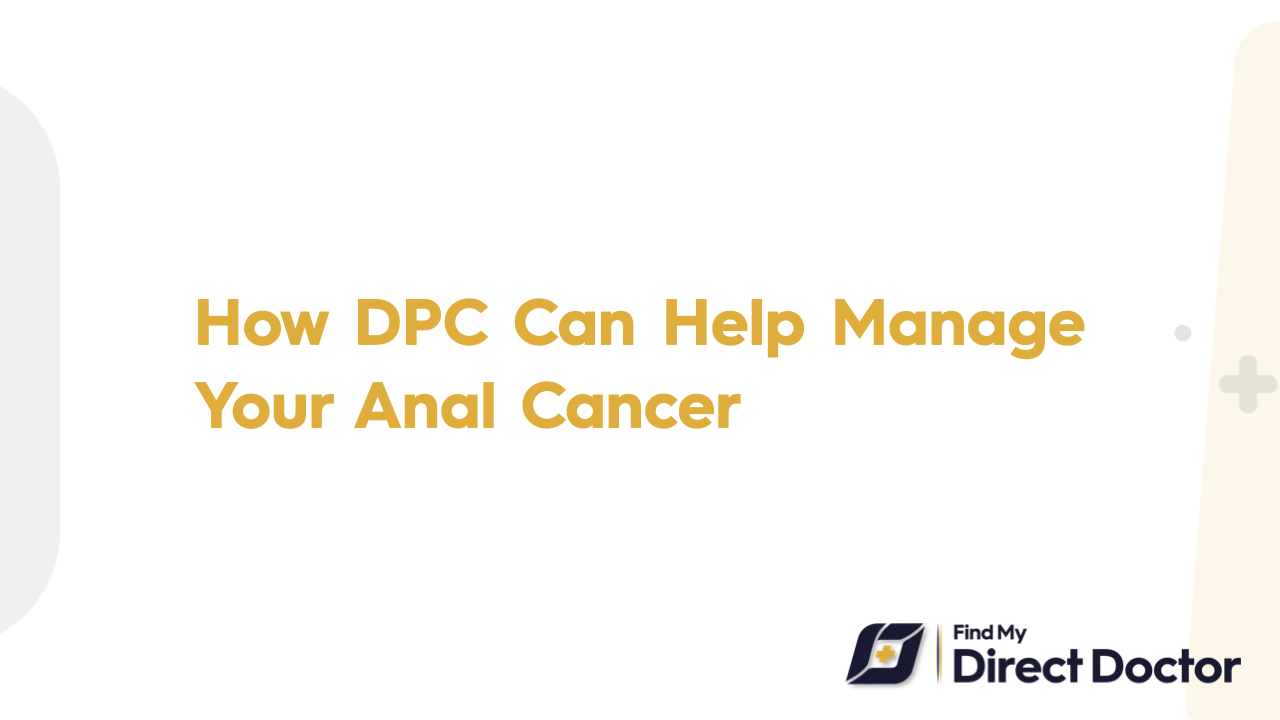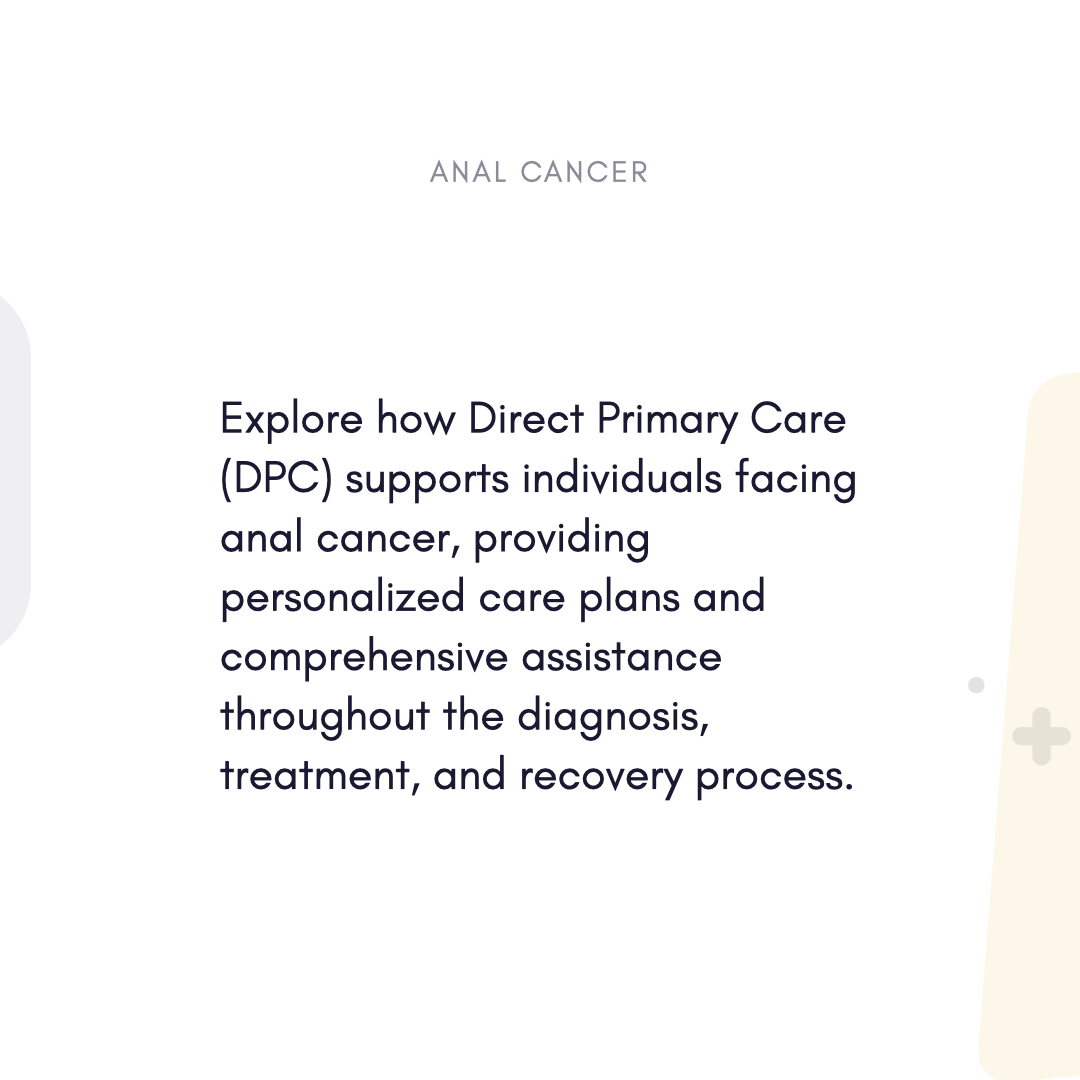



Although anal cancer is rare, its incidence has been rising in recent years. It develops in the anus tissues and is less common than some other types of cancer. Managing anal cancer requires a comprehensive approach that includes early detection, accurate diagnosis, and tailored treatment plans tailored to each patient's needs. Anal cancer can be managed effectively with Direct Primary Care (DPC). Let's examine how DPC can play a crucial role in managing anal cancer.

In anal cancer, cells of the anus, which is the end of the digestive tract, develop. Anal cancer can occur in different areas of the anus, such as the anal canal or the skin surrounding it. Among the risk factors for anal cancer are infection with human papillomavirus (HPV), anal intercourse, smoking, and weakened immune systems. Symptoms include anal bleeding, pain or discomfort, changes in bowel habits, and lumps or growths near the anus. To achieve the best possible outcome, early detection and prompt treatment are essential.
Patients can access their primary care provider directly without having to seek referrals under a DPC model. In addition to prompt referral to specialists for further evaluation and treatment, this accessibility allows for timely evaluation and management of anal cancer symptoms. For confirmation of the cancer diagnosis and stage, DPC providers can perform digital rectal exams, assess anal lesions, and order appropriate diagnostic tests, such as biopsies or imaging studies.
The management of anal cancer often involves coordination between a number of healthcare providers, including oncologists, surgeons, radiation oncologists, and others. By facilitating communication and collaboration among healthcare team members, DPC providers ensure that patients receive integrated, comprehensive care that addresses all aspects of their condition as advocates for their patients. In this way, care can be delivered more efficiently and treatment delays can be minimized.
It can be overwhelming for patients and their families to be diagnosed with cancer. To help patients cope with the challenges of cancer treatment, DPC providers provide emotional support, counseling, and resources in a supportive and empathetic manner. DPC providers empower individuals to actively participate in their care and make informed decisions about their treatment options by developing a trusting and compassionate relationship with them.
The treatment for anal cancer is tailored to meet the individual needs of each patient, taking into consideration factors such as stage, location, health status, and treatment goals. As part of their collaboration with patients and their oncology team, DPC providers develop personalized treatment plans that may include surgery, radiation therapy, chemotherapy, targeted therapy, or immunotherapy. Treatment plans are designed to maximize effectiveness while minimizing side effects.
Following treatment for anal cancer, ongoing monitoring and follow-up are crucial for detecting disease recurrence, managing side effects caused by the treatment, and addressing any new or ongoing concerns. In order to detect any signs of cancer recurrence or treatment-related complications early, DPC providers offer regular follow-up appointments, surveillance exams, and imaging studies. Anal cancer survivors can benefit from this proactive approach to monitoring in order to optimize their long-term outcomes and quality of life.
Survivorship Support and Education: DPC providers provide survivorship support to help patients and their families navigate life after cancer treatment. Healthy lifestyle behaviors, managing treatment-related side effects, coping with emotional challenges, and accessing support services and community resources may be included in this information. With knowledge and resources, DPC providers help individuals transition from active treatment to survivorship.

In summary, Direct Primary Care offers significant advantages for individuals dealing with anal cancer. With access to timely and comprehensive care as well as comprehensive and coordinated management, DPC helps patients navigate cancer diagnoses and treatments with confidence and support. A patient-centered approach to healthcare can ensure that anal cancer patients receive the specialized attention and personalized care they need to achieve the best possible outcomes.
Previous Post